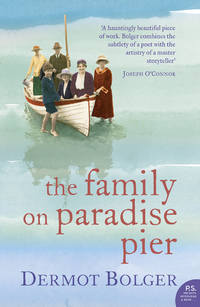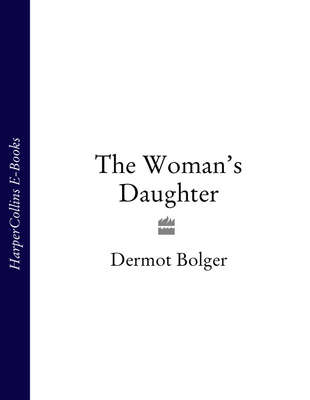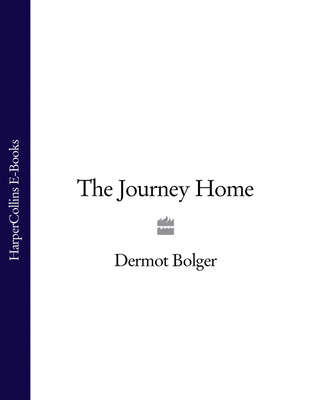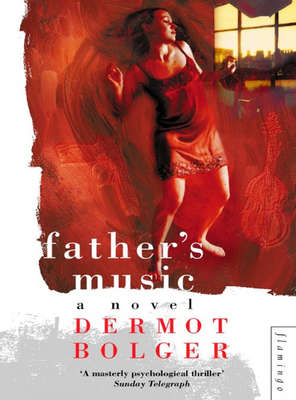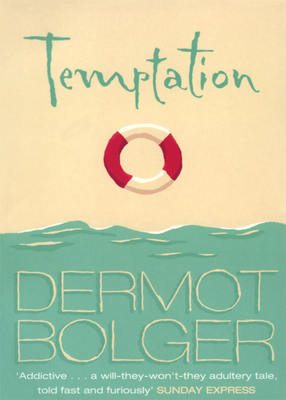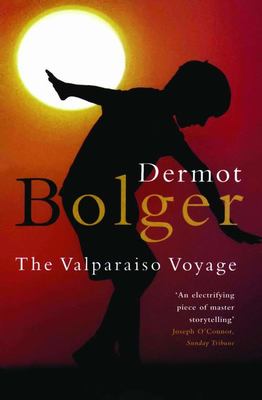Kitabı oku: «The Family on Paradise Pier», sayfa 2
The silence outside the prison train was broken by indistinct sounds: the barking of released dogs, guards shouting in panic, a scramble of boots across the ground.
‘The bastards,’ an old zek muttered behind Brendan. ‘They’re more concerned with saving the dogs than saving us. Come back, you cowards, unlock these doors.’
The entire wagon was on its feet now, banging at the roof and wooden walls. Bursts of machine-gun fire came from above, interspersed with cries.
‘Aim well, Germans,’ a woman said. ‘Kill every guard.’
‘That’s who they want,’ a young man added. ‘I mean, why would the Germans want to destroy us?’
‘They don’t,’ replied the old zek. ‘We count for nothing. They want to destroy the carriages, this rolling stock.’
Noise of frantic hammering came from inside every wagon. Brendan heard the crush of timber and knew that one set of prisoners had broken free. Their shouts turned to screams amid a burst of gunfire, but he could not tell if the bullets came from the plane or if the guards might have set up their machine guns in the undergrowth. Two men beside him hammered at the roof, being lifted up by other prisoners. They broke away a wooden slat, yielding a dazzling glimpse of blue sky. Everyone was screaming now. But Brendan was utterly still, mesmerised by the blueness above him. It was the blue of an Irish summer and crossing that patch of light was a small aircraft, departing or wheeling around for another assault. It resembled a child’s plaything, a sparkling gleam in the bright air that made him catch his breath as it turned in a slow loop. Others saw it too and began to scream louder. But Brendan said nothing because he had become a boy again, standing on Bruckless Pier to draw in the bright kite that his eldest brother had made for him.
Eva looked up from her husband’s letter as Hazel waltzed out from the kitchen onto the lawn in her bare feet. The girl stirred a mixture in the jug she carried, then tossed back her hair to blow the first bubble skyward, laughing as it rose and burst. Francis briefly watched, then lay back with the dog beside him.
Eva laid down Freddie’s letter and, feeling a sliver of guilt at her idleness, purposefully picked up her pencil to start making the list of tasks planned for this afternoon. But Hazel’s laugh made her glance up at the extraordinary way the child twisted her supple body to keep the bubbles aloft. The girl was totally immersed in this game, enjoying her triumph whenever a bubble stayed intact, laughing at the silent plop of its extinction, then starting anew with a fresh bubble stream. Nothing else existed for Hazel at this moment: no war, no bombers circling Europe’s skies, no threat of invasion or nerve gas, no future complicated by adult decisions. Just these weightless globes to be savoured for the brief totality of their existence.
Eva stared down at the jotting pad, the list of tasks banished from her thoughts. It was years since she last held a pencil for any reason except to scribble down lists. Her childhood instinct to draw – dormant for so long – had unconsciously taken over. She discovered a swirling sketch of her daughter already half finished. Eva examined it with a quickening of the heart. She could draw again if she didn’t think about it. Let the pen do the thinking. A second image shaped itself on the page. Of Hazel stationary this time, back arched and head held back to blow a bubble upward. Eva could see her own reflection within the girl, as if she was the same age, experiencing the same joy. The second sketch was barely finished before her fingers commenced a third. If the girl looked over, the magic would be ruined. Hazel would demand to see what Eva was doing, minutely examining each sketch. But these drawings felt as light as bubbles. At the slightest pressure her ability would burst asunder. It was like a sixth sense returning to her fingers, with the tension of adulthood banished.
Francis spied Maureen’s bicycle beside the front steps. He mounted it and freewheeled deftly across the lawn. Two quarrelling birds chased each other among the trees. There was so much that Eva could add to her sketch: their crumbling house, cattle in the fields below, the crooked stable door. But there was no need to include these because Eva merely wanted to draw happiness. As Hazel spun in giddy circles she seemed like an axis, a fulcrum, a whirlpool of happiness, drawing the whole world into her on invisible threads.
The dog barked, chasing the weaving bicycle. Maureen came from the kitchen to say that tea was ready. But nobody moved as if nobody could hear. Hazel scooped into the jar to unleash a final stream of bubbles. They soared above her, rainbow-coloured in the light. This was how her family had been in Donegal, Eva realised, diving into the waters at Bruckless Pier, beautiful, impractical, living in the moment with no awareness of how short-lived that paradise would be. Hazel danced beneath the last bubble, throwing her head so far back that it seemed impossible she would not fall. Borne by her breath, the bubble rose so high that Eva had trouble following it. Maureen stopped calling and even Francis halted the bicycle to watch. The bubble balanced in midair and Hazel balanced on the grass, equally poised and beautiful until, without warning, it burst and there was nothing left. Hazel toppled backwards, rolled over to gaze at her mother and laughed.
PART ONE 1915–1935
ONE The Picnic
August 1915
Eva thought it was glorious to wake up with this sense of expectation. The entire day would be spent outoors, with her family chattering away on the back of Mr Ffrench’s aeroplane cart as Eva dangled her legs over the swaying side and held down her wide-brimmed hat with one hand in the breeze. Surely no other bliss to equal this.
Her older sister Maud was asleep in the other bed in the room. Dust particles glistened in the early sunlight, creeping through a slat in the wooden shutters, the thin beam making the white washbowl beside the water jug even whiter.
It was barely six o’clock but thirteen-year-old Eva could not stay in bed a moment longer. Nobody else was yet awake in Dunkineely. Soon the endless clank of the village pump would commence, but until then Eva had paradise to herself. If she rose quietly she could go walking and be home again before the Goold Verschoyle household rose to prepare for today’s picnic.
Dressing on tiptoes so as not to wake Maud, Eva slipped downstairs. An old white cat beside the kitchen range lifted his head to regard Eva with a secretive look as she lifted the latch and escaped into the garden. The clarity of light enraptured her, with spider webs sketched by dew. Eva followed a trail of fox pawmarks along the curving path leading to the deserted main street, then took the lane that meandered down to the rocky Bunlacky shore. The sea breeze coming off St John’s Point swept away her breath, filling Eva with a desire to shout in praise. She closed her eyes and formal hymns took flight in her mind like a flock of startled crows, with new words like white birds swooping down to replace them. The prayers that meant most were the ones which came unbidden at such moments:
‘O Lord whom I cannot hope to understand or see, maker of song thrush and skylark and linnet. Do with my life what you will. Bring me whatever love or torment will unleash my heart. Just let me be the person I could become if my soul was stretched to its limits.’
Eva opened her eyes, half-expecting white birds to populate the empty sky. Instead a few bushes bowed to the wind’s majesty.
As son of a Church of Ireland bishop, Father took his task seriously of instructing the boys in religion but Mother claimed that secretly he only went to church to sing. It was Mother’s responsibility to instruct the girls. Yet even without Mother’s Rosicrucian beliefs and indifference to organised religion, Eva knew that she would have outgrown their local church in Killaghtee, where sermons were more concerned with elocution than any love of Christ. She needed a ceremony which encompassed her joy at being alive. But if Eva did not belong with her family in the reserved top pew in Killaghtee church, where did she belong? Neither in the Roman Catholic chapel which Cook and Nurse attended nor with the Methodists in their meeting hall next door to her home. Right now this lane felt like a true church, filled with the hymn of the wind. Freedom existed in this blasphemous thought, a closeness to God that might have heralded the sin of vanity had it also not made her feel tiny and lost. Eva closed her eyes and slowly started to spin around, feeling as if she were at the axis of a torrent of colour. Behind her eyelids the earth split into every shade of green and brown that God ever created. The sky was streaked in indigo and azure, sapphire and turquoise. Prisms of colour mesmerised her like phrases in the psalms: jade and olive and beryl, rust and vermilion. At any moment she might take off and whirl through the air like a chestnut sepal. Her breath came faster, her head dizzy.
‘Can you see your child, Lord, dancing her way back to you?’
A sound broke through her reverie, a suppressed laugh. Eva opened her eyes but the earth declined to stop spinning. A young barefoot girl grasped her hand with a firm grip, steadying her. The girl looked alarmed.
‘I’m sent for the cows, miss,’ she said. ‘Are you okay?’
‘Yes.’ The world still swayed dangerously but Eva let go her hand, able to stand unaided.
‘Was it a fit? My sister has fits. She’s epil…’ The girl struggled with the word. ‘Epileptic. They took her to the madhouse in Donegal Town. Are you mad too?’
‘No. I’m just happy.’
The girl mused on the word suspiciously.
‘Your father defended my Uncle Shamie in court for fighting a peeler, miss. They say you’re a fierce dreamer, and your father is for the birds. Why don’t you go to boarding school like your sister?’
‘Mother says I am not strong enough.’
‘They say your mother is a right dreamer too, miss.’
‘What’s your name?’
Deciding that she had already revealed too much to one of the gentry, the girl veered past Eva and moved on, viciously whipping the heads off nettles with a hazel switch. Eva felt embarrassed at being seen.
Where the lane bent to the left the sea came into view. A small sailing ship was firmly anchored in the bay, never changing position despite the buffeting it received from the waves. It was time to go home but Eva could not stop watching the boat. More than anything she wished to be like it, firmly anchored despite the wild seas of emotion she constantly found herself in.
A queue was forming at the village pump by the time Eva returned up the main street. People greeted her respectfully and she talked to everyone. Possibly because she had never gone away to school for long, the whole village had adopted her.
Eva’s miserable few months in boarding school last year had convinced Mother that she was not strong enough for sports or other girls. But sometimes Eva wondered if she was kept at home to afford Mother company during the winter when Mother was affected by illnesses that Dr O’Donnell seemed unable to pinpoint. The front door of the Manor House was open and her five-year-old brother, Brendan, ran out half-dressed to chase the ducks splashing in pools along the deeply rutted street. Eva swept him up in her arms and handed him back to Nurse. The clang of the pump followed her as she walked around by the side of the house. Visitors sometimes asked how the family tolerated this constant clank, but Eva only really noticed the pump when it stopped. For her it represented the creaking heart of Dunkineely.
Her family would be up, chattering away over breakfast, but Eva’s first responsibility was to feed her rabbit in the hutch near the tennis court. Crickets communicated with each other along the grassy bank in an indecipherable bush code as Eva cradled the rabbit to her breast, savouring the special shade of pink within the white of his ears. Sitting on the grass beside the rabbit as he ate, she spied Father through the drawing-room window. His few briefs as a barrister were mainly the unpaid defence of locals in trouble. His real passion was music and Father had left the breakfast table early to work. A black cat – whom he christened ‘Guaranteed to Purr in Any Position’ – sat motionless on his piano as he composed. The cat loved Father, not with a dog’s adoring servitude but as an equal with whom she condescended to share her space. She would sit for hours when he played – her head cocked like a discerning, slightly quizzical, music critic.
All the house cats belonged to Father. Mother’s pleasure arose from holding any baby in her arms. Eva was the only baby she ever rejected, just for a brief moment after Eva was born. Take her away, she had ordered Nurse because – having already borne one daughter – she was convinced that she had been carrying that all-important son and heir. Mother herself had told Eva this story and though Eva never sensed any trace of rejection within Mother’s unequivocal love since then, it still caused unease. Returning the rabbit to the hutch, Eva plucked some daisies from the grass bank and held them to her nostrils. The scent always conjured her earliest memory of sitting on this slope at toddling age, picking a bunch of daisies to breathe in their smell that swamped her with happiness. In her memory, Nurse sat knitting nearby, her white apron hiding a plump, inviting lap. Eva could remember longing to be on Nurse’s lap and suddenly it had felt like she was already there, as if Nurse’s essence – her warm skin and laughing breath – was reaching Eva through the ecstasy of inhaling the fragrance of daisies. Even now she could still recall racing towards Nurse’s arms, holding out the bunch of daisies to be savoured.
‘Eva, quit dreaming and come and have some breakfast! The Ffrenches are calling for us at eight o’clock.’
Maud’s voice had an exasperated big sister tone as she summoned Eva from the doorway. Eva waved and went to join her family in the breakfast room. In Father’s absence, Art sat in the top chair. Sixteen months younger than Eva, he was the heir whom Mother had longed for, being groomed already to take over the Goold Verschoyle lineage. Thomas sat beside him, a year younger and two inches smaller, focusing on eating his egg with the exact concentration that he brought to every task. Being the middle brother made him weigh the value of everything. Brendan was too small to care about such matters. As the youngest he took it as his right to be spoiled by everyone. Maud was organising the hamper with the cook, having baked the cakes herself last night. The servants looked to fifteen-year-old Maud for instructions, finding Mother frequently too unwell to oversee the running of the house. But this was one of Mother’s good weeks and, spurred by the presence of her Cousin George, she would accompany them on today’s picnic.
Everyone at the table talked about their plans for the day. All were good swimmers, though Art was by far the strongest – being nearly as fast as Oliver Hawkins who was seventeen. The Hawkins family from Herefordshire had spent all this summer at Bruckless House, two miles away. Last year a young couple, the Ffrenches, bought this isolated mansion, built by two local brothers on the proceeds of selling guns to Napoleon and pickled herring to Wellington’s army. Mrs Hawkins was related to Mr Ffrench who after being commissioned into the Royal Navy had been away since January. But Mr Ffrench had returned home two weeks ago, claiming that he had insisted on his naval shore leave coinciding with Eva’s end-of-summer birthday party.
Eva had laughed along with everyone else when he said this, but secretly she believed him. This final week of summer was always the most exciting, culminating in Chinese lanterns being hung in the garden for her birthday party, with charades and fancy dress costumes and singers gathering around Father at the piano. After Eva’s birthday the farewells would start at the train station, with the Hawkins family returning to England, Art, Thomas and Maud going away to school and Mr Ffrench rejoining his frigate currently moored in Killybegs Harbour. But Eva refused to let this thought sour her mood as the maid ran in to announce that Mr Ffrench’s cart had arrived and, within seconds, the breakfast room was full of laughing voices.
Mother entered the room with Cousin George to greet the new arrivals. Cousin George was a wise chameleon, secretly in tune with Mother when discussing the occult and yet indistinguishable from any other Church of Ireland curate when a guest preacher in the pulpit at Killaghtee church before their neighbours. His sermons were the only ones that Eva still enjoyed, although the Ffrenches never attended church to hear them – being of a religious persuasion, the Baha’is – that not even Mother had heard of. No locals minded the Ffrenches’ eccentricity because nobody understood it. Grandpappy, now on his annual summer visit, declared that no such religion existed except among a handful of demented Arabs driven from Iran, and the Ffrenches would forget such nonsense once they began to procreate like decent Christians. But since Father invited them along to a picnic last autumn, the Ffrenches had become part of the family, opening up their house and shoreline garden to the Goold Verschoyle children.
The ceaseless chatter made Eva fear that today’s picnic might never start. But Maud coaxed everyone out onto the street where people started to lift picnic baskets up onto Mr Ffrench’s open-backed float, christened the Aeroplane Cart. Maud sat at the back with the Hawkins twins, who were the same age as her, dangling their legs and bending their heads together to gossip beneath wide-brimmed hats. Somehow twelve-year-old Beatrice Hawkins managed to perch between Art and Eva, unable to address either of them. Until ten days ago Eva and Beatrice had been the closest chums, left to fend for themselves when Maud and the twins disappeared to whisper about grown-up secrets. They had searched for nests without disturbing the eggs, taken turns to push Brendan on his scooter along the street with anxious ducks scattering or had gone walking along the shore with Art minding them. But recently Eva could not explain the friction between them, as if Beatrice was jealous of Eva having a brother so wonderful as Art and wanted to push in and play at being his sister also.
Beatrice’s brother, Oliver, held the reins as the cart left Dunkineely behind. Eva saw Maud watching him furtively and knew that she had fallen in love. When they reached Bruckless village, Oliver gave Thomas the reins and went to sit among the grown-ups. Cousin George had Brendan on his knee, teaching him to shout the responses to a music hall rhyme:
‘Who goes there?’
‘A grenadier.’
‘What do you want?’
‘A pint of beer.’
‘Where’s your money?’
‘In my pocket.’
‘Where’s your pocket?’
‘I forgot it.’
The adults laughed, demanding an encore as the horse jangled along the Killybegs road. The Donegal hills rose to the right, arrayed in purple, with the sea to their left and beyond it Ben Bulbin screening the distant Mayo mountains. Sunlight lit the gorse, with foxgloves peeping from hedgerows. Father was maintaining that idle moments like this brought us closer to the truths of the universe, while Mr Hawkins countered that the Irish were sufficiently lazy without being given a philosophy to excuse their idleness.
Eva was relieved to hear the adults not discussing the war because today was too perfect for outside intrusions. The morning passed in a babble of voices that died away as they neared the sea, leaving just the jangle of the harness and the noise of hooves on the dusty road.
The view from the rocks beside the beach was so striking that Mother had to sketch it at once. Eva climbed up with a sketchpad to keep her company. Both looked out to sea, drawing quietly. Behind them, rugs were spread out on the sand and Maud arranged plates from the hamper as the Hawkins twins poured homemade lemonade. Father sat talking to Art while Beatrice Hawkins lay beside Art in the very spot where Eva wanted to lie when the sketching was finished. Brendan kept pestering Art by presenting seashells to the big brother he worshipped and, although Beatrice Hawkins was normally too quiet to merit notice, Eva saw that she also kept bothering Art by shyly brushing sand with her bare foot over his.
They had forgotten to bring drinking water, but Mr Ffrench climbed up towards the caves with a copper kettle to collect water from the streamlet trickling down over the glistening rocks. Father went to assist him and suddenly Beatrice Hawkins found the courage to lob a handful of sand over Art’s hair. She shrieked as Art rolled over to trap her in a wrestling hold, gathering up sand that he playfully threatened to make her swallow. Then just as quickly Art rolled off the girl and picked up Father’s book, pretending to ignore her.
‘Oh,’ Mother said quietly, distracting Eva. Her pencil went still as she stared across the waves. Thirty seconds passed before she looked at Eva with an air of casual curiosity. ‘How strange. I’ve just seen something interesting.’
‘What?’ Eva asked.
‘I don’t know,’ Mother replied matter-of-factly. ‘A stone statue rose slowly from the sea to block the horizon.’
‘What did it do?’
‘Why nothing, dear, obviously. It was just a statue. It rose as far as its navel, then sank slowly without a sound.’ Mother resumed sketching, her seascape bereft of any figure. ‘It looked rather like Neptune,’ she added as an afterthought. ‘Or Manannán Mac Lir, the Celtic God of the Sea, the way that AE draws him in visions. Not that AE is a good draughtsman, of course. How is your sketch coming on?’
‘Fine,’ Eva replied, accustomed to Mother’s psychic visions. They sketched away with nothing further to say. The stone figure would be their secret. It had no place in the boisterous picnic taking shape on the sands where Mr Ffrench clambered down to applause, jumping the last few feet without spilling a drop from the kettle. Eva was anxious to help Art deal with the pest which Beatrice Hawkins had become for him and, once the kettle was boiled over a fire of twigs, Mother was also happy to join the main picnic.
The meal was gloriously protracted, with interruptions as shapes in the changing clouds diverted people’s attention or when they paused to hear each other’s favourite quotations. Father, for once, chose not Whitman but Longfellow to share with the gathering:
‘And evermore beside him on his way
The unseen Christ shall move,
That he may lean upon his arm and say
“Dost thou, dear Lord, approve?”’
Cousin George was a master diplomat, encompassing the Ffrench’s strange beliefs by reciting:
‘So many gods, so many creeds;
So many paths that wind and wind,
While just the art of being kind
Is all the sad world needs.’
Eva saw how this gesture impressed Mr Hawkins, who knew that Grandpappy – who avoided today’s picnic by rising early to go into Killybegs – had little time for divergent beliefs, including those of his own daughter-in-law. Mr Hawkins’s good mood was tempered however by Maud’s hot-headed contribution to the quotations:
‘Ireland was Ireland when England was a pup
And Ireland will still be Ireland when England is done up.’
Home Rule was anathema to Mr Hawkins and Eva sensed how the picnic could be soured by politics. Nobody disputed the absolute rightness of the war in Europe, but people held differing opinions as to what should happen in its aftermath. Father believed strongly that what was good enough for Belgium should be good enough for Ireland and so, in fighting to free that small nation, the Irish boys were fighting for their own right to self-determination. Mr Ffrench appeared less sure. Since his rapid promotion within the Royal Navy he seemed to lean more towards Mr Hawkins who called Father’s attitude treasonous for a Briton. Father laughed off this comment, saying that the Verschoyles lacked one drop of English blood. They were Dutch nobles who came over with William of Orange and later married into ancient Irish clans whose ancestry he had personally traced back to Niall of the Nine Hostages.
Leaving politics to the grown-ups, Eva joined the other children bathing in the sea, with Maud delighted when Oliver Hawkins joined them. Oliver said little about the war and Eva suspected he felt differently from his father. As Art and Oliver raced each other out to the rocks, Eva lay in the waves and watched Maud secretly cheer on Oliver against her brother and Beatrice Hawkins secretly do the same for Art. At last the time came to pack away the hampers and load the cart, with Beatrice again interloping between Eva and Art. People said less on the return journey, content to relax in the evening sun.
When they reached Killybegs Harbour a coach was parked along the quay where a travelling showman was demonstrating a wireless set. Mr Hawkins gave them all money to sit among a row of people with earphones over their heads, listening to a crackle of faint voices breaking in from outside. Maud seemed indifferent amid the general gasps of wonder, but these bodiless voices disturbed Eva, breaking into her closeted world with other lives and languages. She couldn’t wait to dismount from the coach but the showman had to shake Art and Thomas before her brothers removed their headphones. Art seemed distracted as they returned to the cart, questioning Mr Hawkins about every aspect of radio.
Waiting for them there was Grandpappy, a tall white-bearded old man dressed in knickerbockers appropriate to his ecclesiastical station. Two soldiers arranging their posters more prominently outside a recruiting booth respectfully nodded to Mr Ffrench, instinctively recognising his military bearing. Young women leaving the carpet weaving factory studied a poster outside the Royal Bank of Ireland advertising sailings to New York for three pounds and sixteen shillings. Grandpappy wanted to know who would ride in his pony and trap. Eva scrambled up into the trap, with Art behind her. People joked about them being inseparable during the holidays and she hated to think of him returning to Marlborough College. Eva fretted when Mrs Hawkins asked Grandpappy to wait, complaining that her old bones couldn’t take the bumpy aeroplane cart, but although Beatrice longed to join them she was too shy to follow. The old man took Art on his knee, allowing him the reins.
Eva might be Grandpappy’s favourite but in time Art would be his heir after Father, with the Manor House perpetually indentured by law to be passed in trust to the eldest son of the eldest son.
On a bend with fields falling away towards the sea, a flock of sheep halted them, crowding through a crude gateway from the lands of Mr Henderson, a local farmer. Frightened of the pony, they shied into the ditch. A sandy-haired boy of Art’s age darted after the sheep, fiercely waving a stick. Welts formed a mottled pattern down his thighs. His bare feet were brown with dust and his face had a pinched hungry look.
‘Gee-up!’ Grandpappy encouraged Art to take control and urge the pony forward. The boy lowered his stick to stare at Art. For a moment Eva saw them observe one another, each boy intensely sizing up the other. Then Grandpappy flicked the whip and the pony jogged past, scattering the sheep.
‘Why does he have no shoes?’ Art asked, as if their staring contest had only now brought home this everyday disparity.
‘What would he need shoes for?’ Grandpappy laughed. ‘His feet are as hard as the hob.’
‘He wasn’t born with hard feet.’
‘He was born poor. He looks a strong lad who’ll do well for himself if he works hard. He won’t be left standing at the Strabane hiring fair when his time comes. Tyrone farmers know the measure of everything from horseflesh to boys. He’ll find a good master.’
‘Better a farm than the Glasgow mills,’ Mrs Hawkins said.
She and Pappy fell silent, but something troubled Art. The reins went loose, the pony slackening as if sensing a lessening of authority. Eva looked behind to spy the aeroplane cart encountering the sheep.
‘What if he doesn’t want to stand at a fair like an animal?’ Art asked.
‘That’s how life is ordained.’ Mrs Hawkins broke into a verse of All Things Bright and Beautiful:
‘The rich man in his castle,
The poor man at his gate,
He made them high or lowly
And ordered their estate.’
‘Stop the cart,’ Art said with sudden fierceness. ‘He’s my size. I want to give him these shoes. It’s stupid that I own five pairs and he has none.’
Pappy laughed, wrapping Art in a bear-hug till the boy ceased to struggle.
‘You’re a good boy, but you must harden yourself or be fooled by every beggar and three-card-trick-man on the street. He’ll have shoes when he earns them. It’s how the world works. You’ll have men under you one day. Firm but fair is how to win respect, not by throwing away your possessions.’
Distant laughter rose behind them as Father joked with the boy who managed to harry the sheep into an enclosure. Brendan was asleep, being rocked on Mother’s lap. Eva envied Art his place on Grandpappy’s knee, like she envied him the status she would have enjoyed if born a boy. Art was her special friend, but since Beatrice Hawkins started talking too much or going silent in his company, Eva had been disturbed by a recurring dream. In it Art was bound in a dungeon with Eva advancing on him, holding the terrible steel contraption she once saw a farm boy carry. When Eva had asked what it was the boy snapped it shut and smirked, ‘To castrate young bulls, miss, and put a halt to their jollies.’ Eva did not know what castration meant until Maud, who knew everything, said it was ‘to cut off the slip of a thing men make such a fuss about’. This dream mortified her because she could never hurt Art. Shivering, Eva reached guiltily across to ruffle Art’s hair. He loosened Grandpappy’s bear-grip enough to smile back, although she saw how he was still upset.
